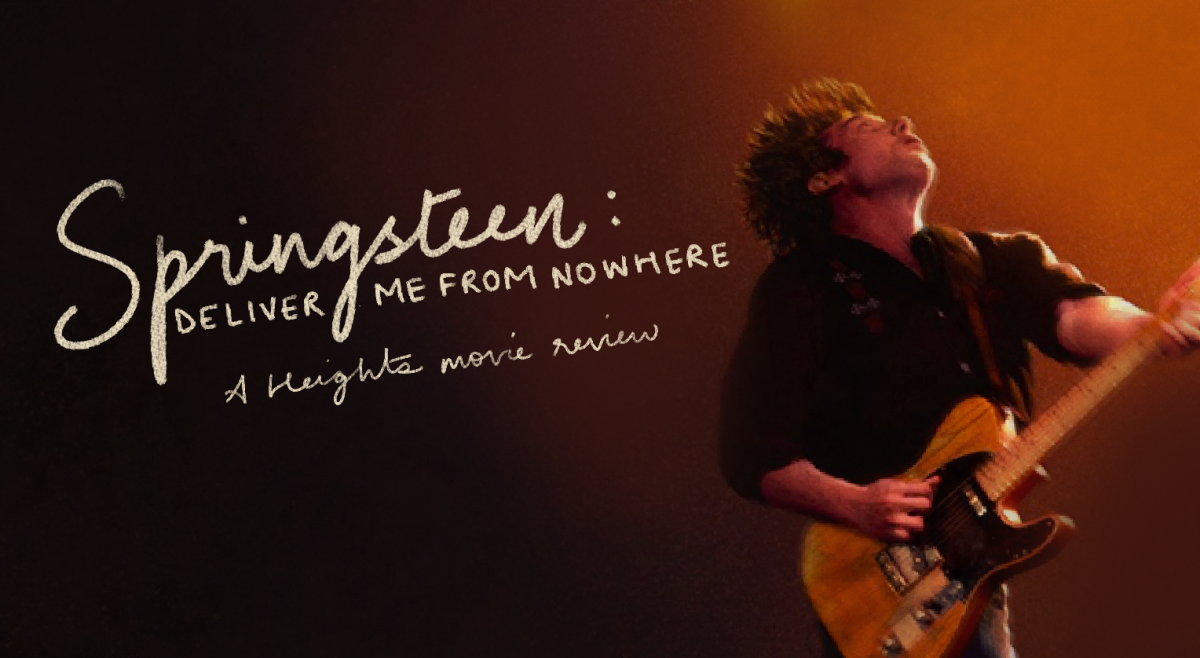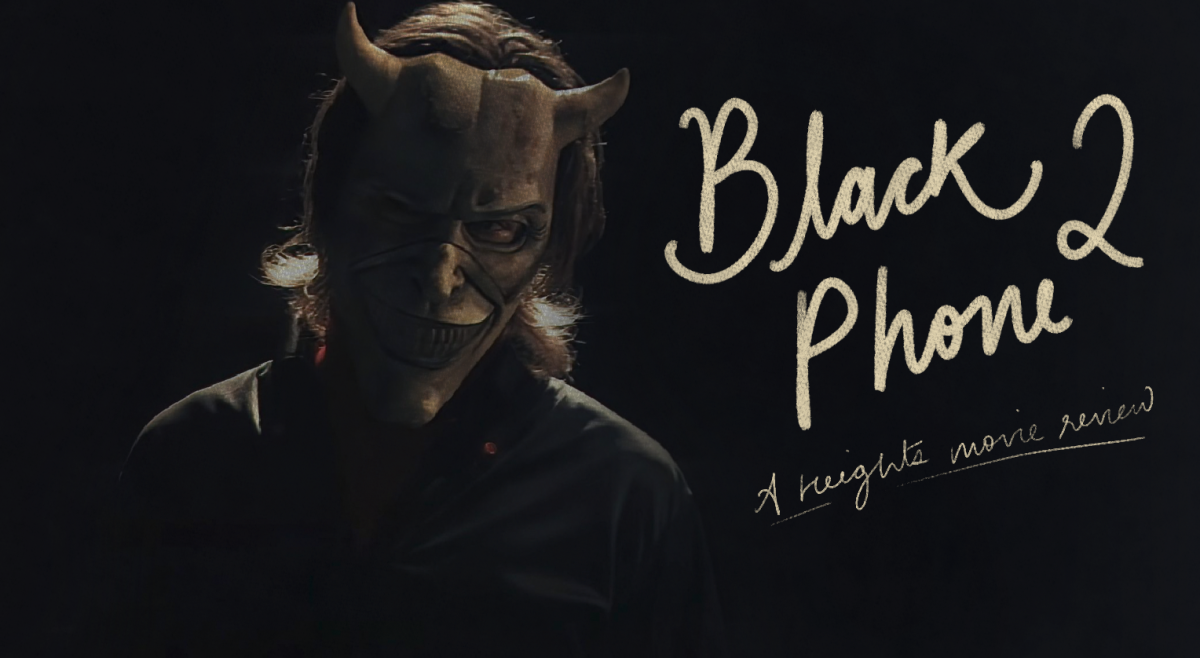★★★★☆
In Springsteen: Deliver Me from Nowhere, Jeremy Allen White proves his remarkable range. He embodies a multitude of feelings, expressing the fragility of mental illness, the warmth of familial relations, the exhilaration of artistic expression, and the destructive nature of narcissism.
The film is a moving and largely successful character study of Bruce Springsteen’s private life during the production of his hit album Nebraska.
The movie opens with a depiction of Springsteen’s childhood home, portraying his tumultuous relationship with his father, which is characterized by domestic violence and alcoholism. This dynamic is further complicated by Springsteen’s loving mother, who stands up for him despite his father’s toxicity.
The scene in which Springsteen hits his father with a baseball bat in defense of his mother is especially emotional. Oddly, this violence is encouraged and supported by his father, who offers unconditional masculine validation.
The switch between black and white in scenes depicting his childhood and color in scenes that take place later in life is a notable directing choice. These emotional flashbacks occur throughout the film, serving as a clear indicator of how Springsteen’s turbulent past influences his current reality.
Scenes from adulthood also consistently mirror those from Springsteen’s childhood. No example is more powerful than when Springsteen flies to Los Angeles to find his father, who’s had a psychotic break. He finds him in a Chinatown bar, a reference to the times when, as a child, he was sent to retrieve his father from their local pub.
This full-circle moment serves as a reminder—no matter how much Springsteen’s life has changed, elements of his childhood continue to haunt him.
After returning from tour, Springsteen moves into a secluded house in New Jersey to focus on his next album.
Foreshadowing later isolation and depression, the camera follows him down a lonely wooded road as he walks to a car dealership. The salesman recognizes him, to which Springsteen replies, “That makes one of us.”
The car symbolizes the decline of Springsteen’s mental health, especially during an ambiguous scene in which his reckless driving could be interpreted as a suicide attempt.
The film follows Springsteen’s life in detail as he develops Nebraska. Using a home recording device, Springsteen’s friend records him playing in his bedroom—the tapes were intended to be rough drafts.
Springsteen finds, however, that many of the rough drafts are better than any polished studio version could be, citing the beauty of imperfection.
“I don’t want it to be perfect,” Springsteen said. “I just want it to feel right.”
While unorthodox, his manager, Jon Landau, stands by Springsteen’s decision and advocates for him. The scene illustrates their deep emotional connection, which further develops as Springsteen spirals.
“In this office—my office—we believe in Bruce Springsteen,” Landau said.
The film’s plot felt slightly prolonged and could have benefited from more concise writing. Nevertheless, the emotional weight of the concluding scenes makes up for it.
White’s performance as Springsteen breaks down during his first therapy session is simply incredible. He exemplifies the years of pent-up, suppressed emotion in a way that is both shocking and relatable.
In the final moments, when 32-year-old Springsteen sits on his father’s lap for the first time, the irony is palpable. Despite his childlike positioning, Springsteen’s the one providing comfort—the same paternal comfort he never received.










